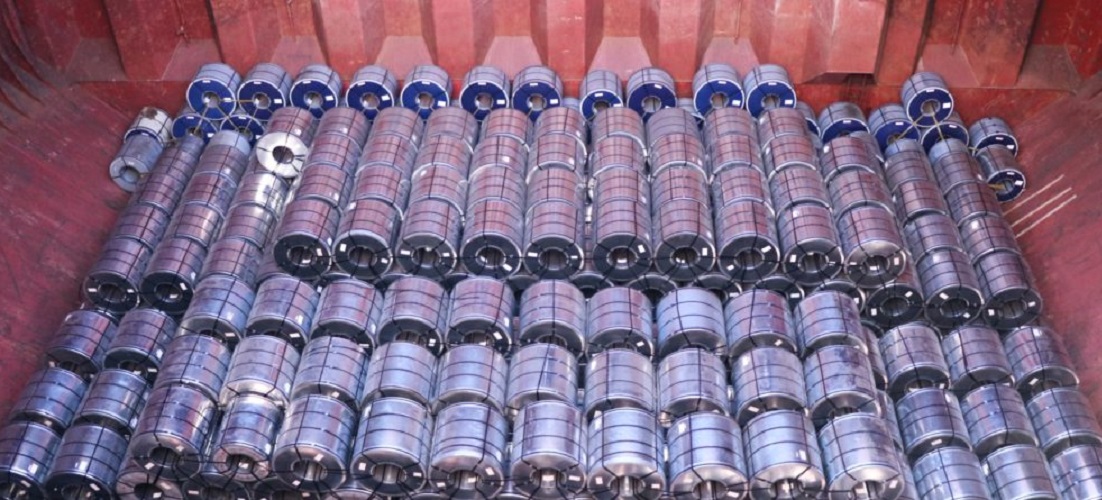
Gerdau seeing unfair competition, raises voice against Chinese steel
Feb, 22, 2024 Posted by Gabriel MalheirosWeek 202408
Gerdau is accelerating the downsizing of its Brazilian operations in response to tougher market conditions, blaming “excessive” imports of Chinese steel. After cutting nearly a thousand jobs in recent months, representing just over 5.5% of its workforce in the country, the steelmaker is considering new rounds of layoffs and capacity closures in the coming weeks. On another front, it has decided to file a formal request for an investigation against China for “dumping” steel exports below the cost of production.
“We have already used all the possible mechanisms of Brazilian legislation in the hope that the government would make a decision [to raise the import tax rate to 25%],” Gerdau’s CEO Gustavo Werneck said on Wednesday. However, according to the executive, the government’s delay in adopting some kind of protection against what local mills consider unfair Asian competition is leading to the need to temporarily close more production capacity, reduce shifts, and make new layoffs. “The government’s delay in making a decision scares us a little,” he added.
According to the company and Usiminas, the recent decision by the Executive Committee of the Chamber of Foreign Trade (Gecex-Camex) to reestablish the import tariffs on five steel products (pipes and bars), which had been reduced to a range of 12% to 16% in 2022, in line with the Mercosur Common External Tariff (TEC), is “absolutely inefficient.”
The industry is working on two fronts to curb steel imports, particularly Chinese steel. Through the Brazilian Steel Institute, the sector is calling for an increase in the import rate to 25% for just over three dozen NCMs (or Mercosur Common Nomenclature, which identifies different groups of goods)—another possibility would be to adopt import quotas. Individually, companies have been in talks to define their strategy for requesting a dumping investigation.
Last year, imports reached a record 5 million tonnes, according to Aço Brasil. In December, the penetration rate of these products in national demand reached 25%, and the pace of imports continued at the beginning of 2024, according to the industry.
The chart below shows Brazilian steel imports between Jan 2020 and Dec 2023. The data is from DataLiner.
Brazilian Steel Imports | Jan 2020 – Dec 2023 | TEUs
Source: DataLiner (click here to request a demo)
Like Companhia Siderúrgica Nacional (CSN), Gerdau has begun the process of requesting the Ministry of Development, Industry, Trade and Services to investigate the Chinese, Mr. Werneck said. Although the steelmaker is convinced that it will be able to prove damage, it is not confident that anti-dumping will be applied.
“Recent investigations, such as the one into hot-rolled products, didn’t result in the imposition of duties even when damage was proven because it was considered that other sectors could be affected,” he said. In addition, the average time for this type of investigation, 18 months, does not meet the urgent needs of the sector, he added.
According to Mr. Werneck, Gerdau believes in opening up trade, but believes that the situation in steel has “crossed the line.” “This competition is not isonomic, it’s not fair,” he said. According to him, the belief that the tax reform will correct the distortions caused by the so-called Brazil cost in the short term is mistaken, and the first measures adopted by the government ended up worsening competitive conditions.
The steelmaker will not revise the R$6 billion investment plan announced for 2024 because of this scenario. But it has indicated that if Chinese steel keeps invading Brazilian shores and the country does not adopt trade protection measures as other markets have already done, Gerdau is likely to direct more investments to other countries, such as Mexico, which has consolidated itself as an important export platform to the United States, to the detriment of the Brazilian operation.
“We call on the federal government to analyze this issue quickly to avoid penalizing an important and strategic sector such as steel and losing future competitiveness,” he said.
Last year, Gerdau’s North American operation was the highlight of the results and remains stable at the beginning of this year, with a 60-day order backlog, supported by the higher-than-expected growth of the U.S. economy. In Brazil, on the other hand, the flat and long steel business continues to be affected by competition from imports.
In specialty steel, while the automotive market continues to recover gradually in the United States, demand in Brazil continues to be affected by the impact of uncertainties regarding access to financing lines and the level of interest rates for car purchases, as well as the significant influx of imported cars.
Source: Valor Econômico
-
Jan, 13, 2025
0
Brasil amplia venda de ovos a Catar e Emirados
-
Sugar and Ethanol
Aug, 23, 2021
0
Copersucar ships 108,900 tons of sugar in Santos, a record in Brazil
-
Other Logistics
Aug, 31, 2021
0
Ceará EPZ prepares for expansion
-
Ports and Terminals
Oct, 07, 2021
0
Santos Brasil sets 2024 targets to reduce environmental impacts


